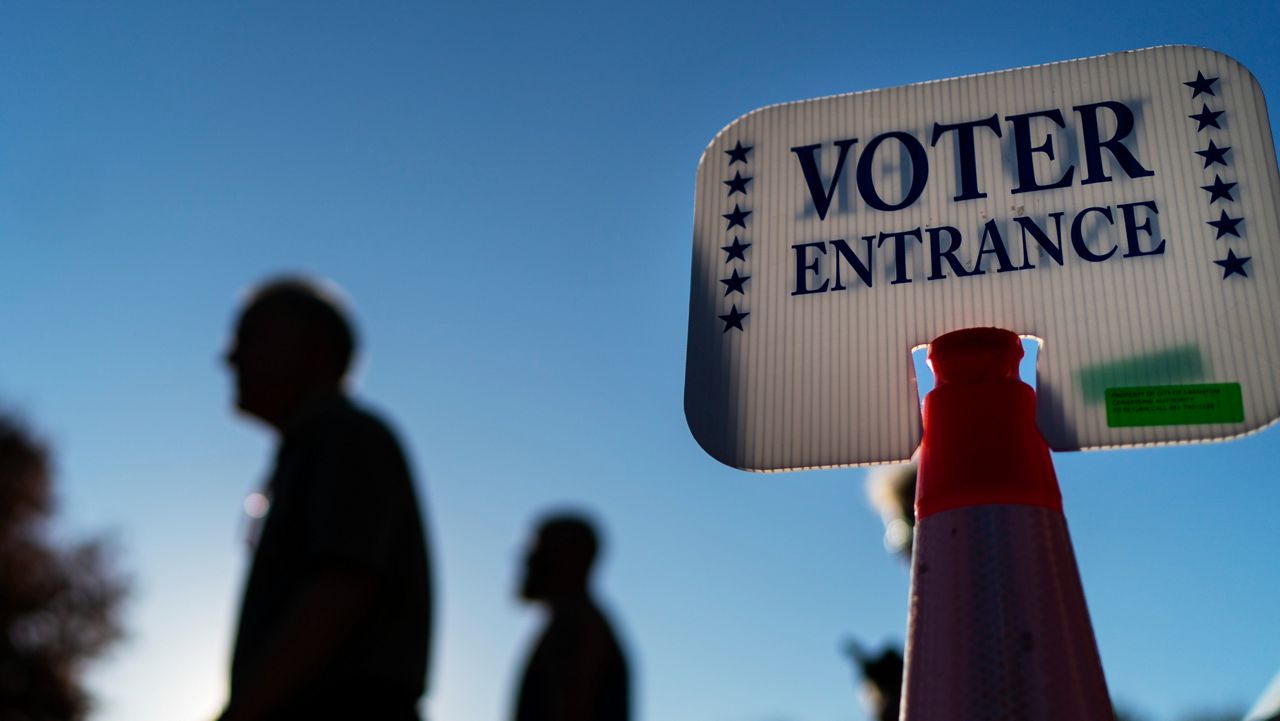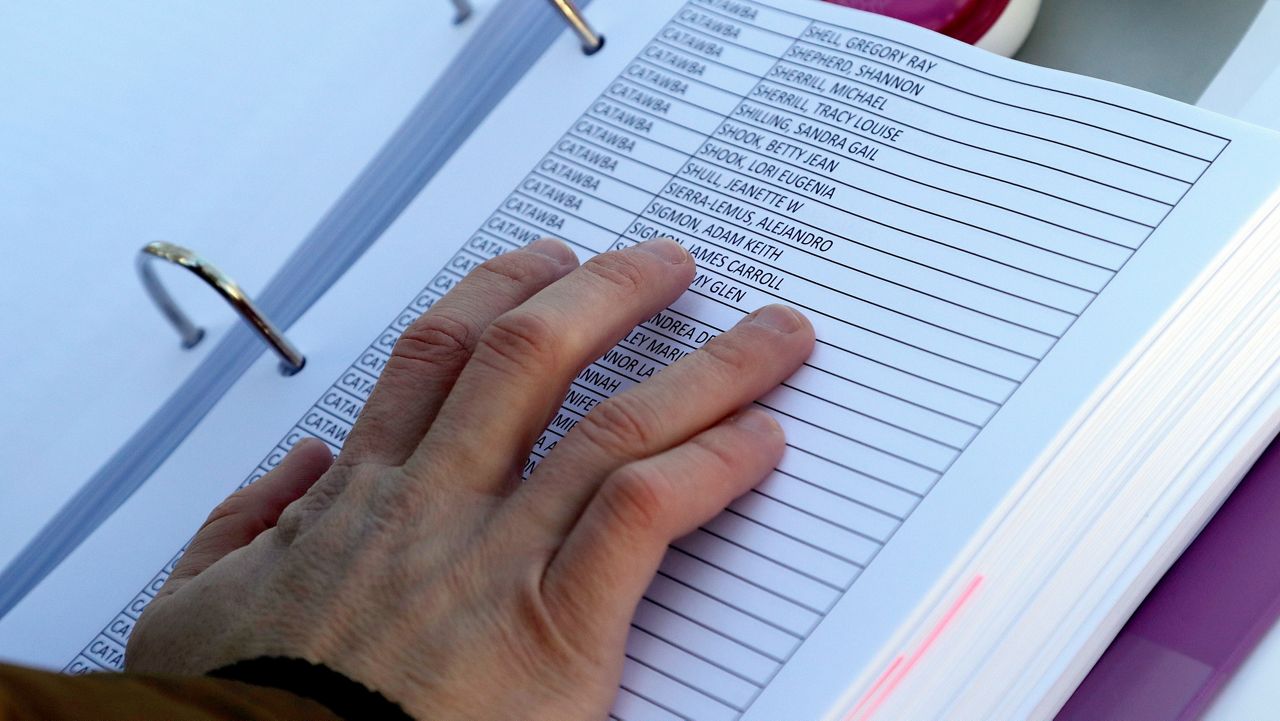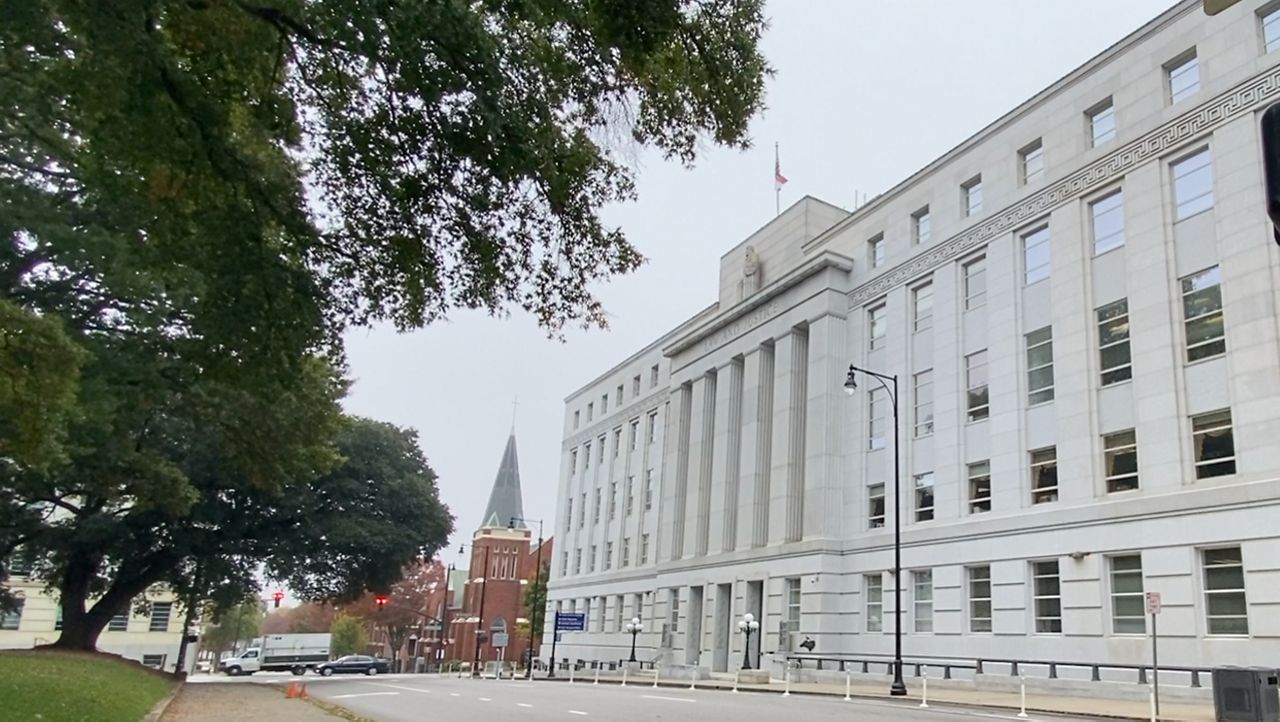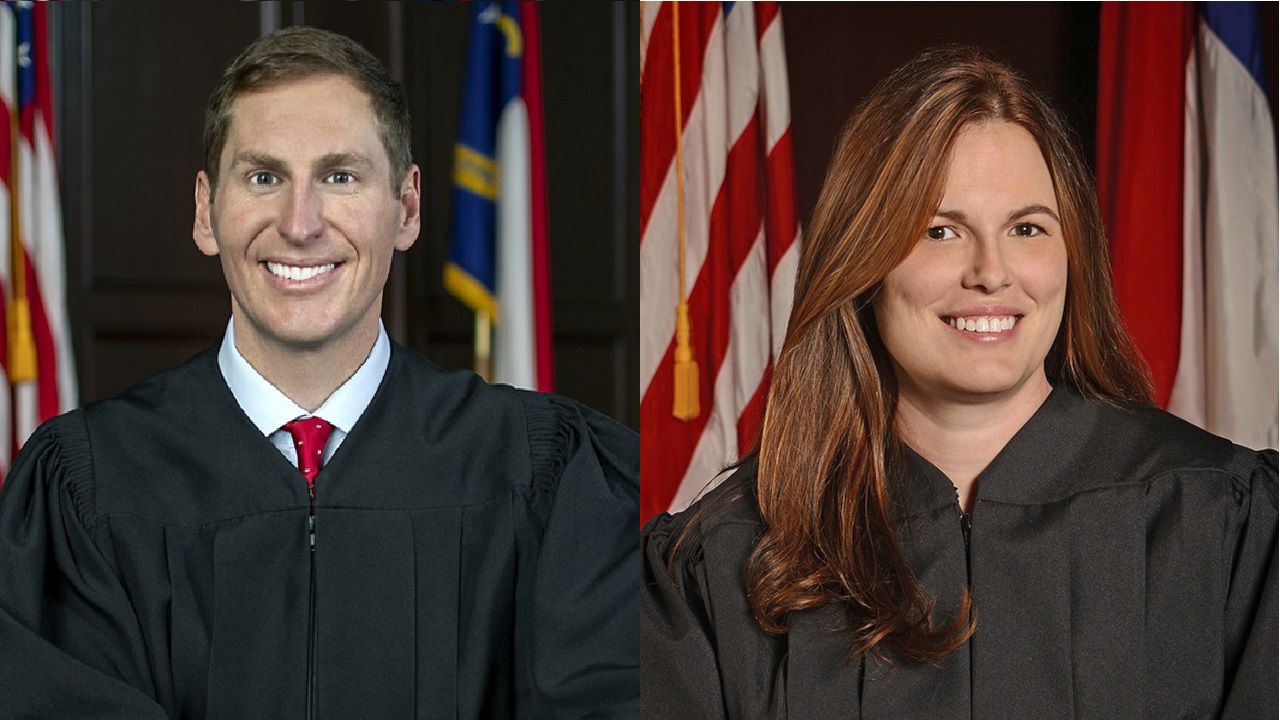Voters across the state will head to the polls Tuesday to cast their ballots in the 2024 general election.
Registered voters will be able to cast ballots for president, vice president, governor, lieutenant governor, North Carolina’s 14 members of the U.S. House of Representatives, superintendent of public instruction, the entire General Assembly, a seat on the North Carolina Supreme Court and numerous local races. Click here for a list of offices up for election.
Early voting wrapped up Saturday, with more than 4.4 million North Carolina residents casting ballots ahead of Election Day, according to the North Carolina state Board of Elections. That's more than 57% of registered voters in the state.
Related article: N.C. sees turnout record with more than 4.2M ballots cast at early in-person voting sites
Turnout in western counties hit by Helene outpaced the rest of the state. Through Saturday, turnout in 25 N.C. counties was 58.9%, NCSBE reports, which is about 2% higher than the statewide turnout.
Voters affected by Helene can click here for information in the voting process.
“I am proud of all of our 100 county boards of elections and the thousands of election workers who are making this happen in their communities,” said Karen Brinson Bell, executive director of the State Board of Elections. “And I am especially proud of the workers and voters of Western North Carolina. You are an inspiration to us all.”
Residents will need a photo identification to vote. According to the North Carolina State Board of Elections, acceptable forms of photo ID include:
- A driver's license
- State ID from the NCDMV (also called “non-operator ID”)
- Non-driver ID from another state, District of Columbia, or U.S. territory (only if voter registered in North Carolina within 90 days of the election)
- U.S. passport or U.S. passport card
- North Carolina voter photo ID card issued by a county board of elections
- College or university student ID approved by the State Board of Elections
- State or local government or charter school employee ID approved by the State Board of Elections
- Military or veterans ID card (with photo) issued by the U.S. government
- Tribal enrollment card (with photo) issued by a tribe recognized by the State of North Carolina or the federal government
- ID card (with photo) issued by an agency of the U.S. government or the State of North Carolina for a public assistance program
For those without a photo ID, county boards of elections can issue free voter photo IDs to registered voters in their county. The voter must provide their name, date of birth, and the last four digits of their Social Security number and have their photo taken. Find more info here.
If a voter is unable to show a photo ID and has a "reasonable impediment," they may fill out an exception form and vote their ballot, according to NCSBE.
Voters will need to go to their assigned polling place to vote on Election Day. The more than 2,650 polling places will be open from 6:30 a.m. to 7:30 p.m. Voters in line at 7:30 p.m. will still be able to cast a ballot.
Election officials do not provide information about candidates, although some advocacy groups do. Voters can see their sample ballot through the NCSBE voter search tool, here.
Am I registered to vote? | How do I register?
Residents will not be able to register to vote on Election Day.
"Voters who become eligible after the regular voter registration deadline (October 11), either due to becoming a U.S. citizen or having their rights restored following a felony conviction, are still permitted to register on Election Day," according to the NCSBE.
Voters can drop off their absentee ballot at their county board of elections office during business hours by 7:30 p.m. Tuesday.
Voters registered in one of the 25 counties in the Helene disaster area in North Carolina can return their absentee ballot to any elections office in the state.
Residents who requested an absentee ballot but have not returned it can opt to vote in person on Election Day. NCSBE said voters who choose to vote in person can discard their absentee ballot and do not need to bring it with them to vote.
Curbside voting is available for those who are unable to enter the voting site. Voters in need of assistance may bring an eligible person to help them enter and exit the polling place, or to help them complete their ballot, according to the NCSBE.
"Across North Carolina, election officials work diligently to ensure the security of the absentee voting process," NCSBE officials said.
The NCSBE said a number of safeguards are in place:
- 12 Reasons absentee voting is secure: Learn about the many processes in place to ensure absentee voting is secure and conducted according to state law.
- Combating misinformation: Find out how to report false claims, and see what we are doing to debunk common election misinformation.
- Cybersecurity: Learn about the efforts involved in maintaining a secure network to prevent cyberattack.
- Preparing for accurate elections: Find detailed information about pre-election testing of voting equipment to ensure accurate vote counts.
- Post-election procedures and audits: Learn about county canvass, the audits that occur after every election, and review the audit reports for previous elections.
- Investigations division: Learn about the process that the State Board undertakes when potential election law violations occur.
- Tips for monitoring or observing the election at polling sites: View the guide for monitors, observers, and runners to ensure a safe and orderly voting site.
- Voter intimidation: Find out what to do if you feel harassed or intimidated at a polling place.
- Phone usage at the polls: Learn about the acceptable usage of personal electronic devices while voting.
- Elections reference guide for North Carolina law enforcement: Find out how law enforcement ensures that voters have free access to voting.
- How we ensure only U.S. citizens register and vote: Many laws and processes work together to ensure that only qualified U.S. citizens cast ballots in elections.
NCSBE is asking for "peace at the polls."
"If you’re participating in the election — as a voter, poll worker, observer, or campaigner — please treat others with dignity and respect. We know the political climate in our country is tense. But let’s make North Carolina a model for accessible, safe, secure, and accurate elections," NCSBE officials posted.









